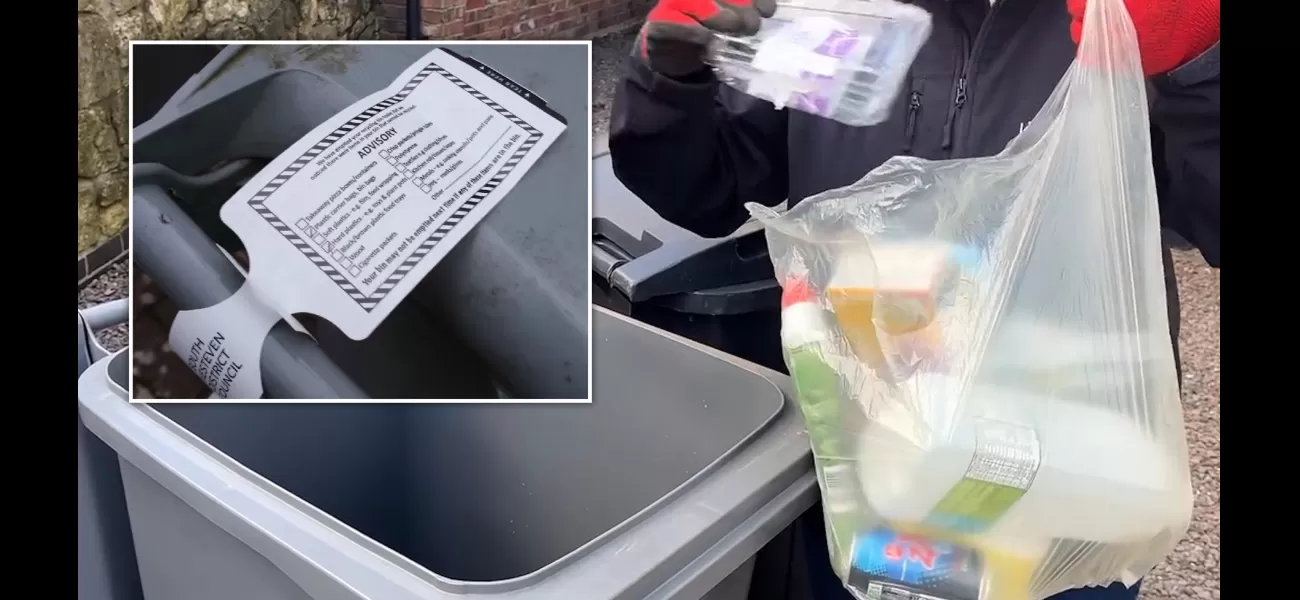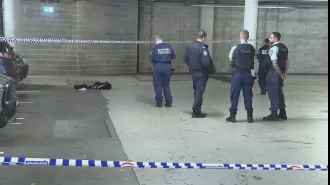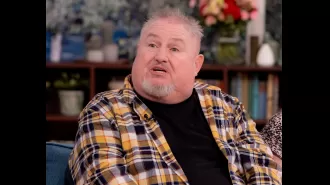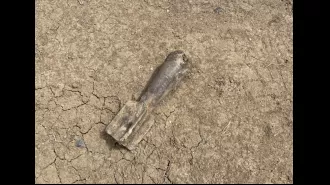Council criticized for labeling overflowing bins as "petty tags of shame," causing public anger.
Whoever would dispose of a used diaper in a recycling container is causing issues for the recycling process.
June 16th 2024.

Garbage collectors have recently sparked controversy by attaching "tags of shame" to bins filled with the wrong type of waste. The South Kesteven Council, located in Lincolnshire, has implemented this new initiative in an effort to educate families about recycling. However, some residents are not happy with the new system, claiming it is too complicated and has caused issues with limited space in their gardens.
Under the new system, households now have three separate bins: a black one for general waste, a purple one for paper and cardboard, and a silver one for plastic bottles, glass bottles, and foil. This week, some residents woke up to find their bins had not been collected and were instead tagged with warnings for not properly sorting their waste. This initiative was introduced in February, and on just two days, over 7,000 incorrectly-filled silver bins were left uncollected.
According to the 2021 Census, there are over 62,000 households in South Kesteven. This recent tagging has been met with frustration and complaints from residents, who have taken to social media to express their dissatisfaction. Some have even argued that they were not at fault for the incorrect sorting of their bins.
One resident, Steve Hall, shared his experience of having his bin rejected due to someone else putting the wrong waste in it. He expressed his disappointment in the lack of common sense and work ethic displayed by the council, stating that this could ultimately lead to a decrease in recycling rates. Another resident, Natalie Thompson, received a tag of shame for recycling plastic bags and bin liners, which she claims were full of recycling. She found this to be contradictory, as the council provides bags for extra recycling.
Amidst the confusion and backlash, the council has backtracked on their decision to leave unsorted bins uncollected. However, deputy chief executive Richard Wyles has warned residents that their bins will not be collected if they contain non-recyclable items. He thanked those who have been properly sorting their recycling and stated that this cooperation is crucial in increasing recycling rates. The council has also been transparent in acknowledging that some bins may be rejected if they contain non-recyclables.
In the first two days of this week, bin collectors rejected 6% of recycling bins, with common items including food, toys, plant pots, nappies, and dog waste. The most frequent incorrect items found in silver bins were paper and card, as well as soft plastics like bin bags, carrier bags, clingfilm, and crisp packets.
The council claims that the tagging system is meant to educate residents about recycling, but many locals have described it as a "tag of shame." In response to reports of confusion, the council is collecting data to understand where residents are still struggling and how they can further assist. Residents who have questions about waste or recycling can speak to council staff who are well-informed and have informational leaflets available.
Conservative MP Michael Gove, who previously served as Secretary for Levelling Up, Housing, and Communities, has demanded an apology from the council for the overflowing bins and confusion caused by the new system. He expressed concern about the lack of accountability from the council's Independent leader, Ashley Baxter. Jonathan Eida, a researcher for the TaxPayers' Alliance, added that taxpayers are tired of sorting through complicated rules and reduced collections and that local authorities should focus on providing the services residents pay for instead of implementing unnecessary bureaucratic measures.
Under the new system, households now have three separate bins: a black one for general waste, a purple one for paper and cardboard, and a silver one for plastic bottles, glass bottles, and foil. This week, some residents woke up to find their bins had not been collected and were instead tagged with warnings for not properly sorting their waste. This initiative was introduced in February, and on just two days, over 7,000 incorrectly-filled silver bins were left uncollected.
According to the 2021 Census, there are over 62,000 households in South Kesteven. This recent tagging has been met with frustration and complaints from residents, who have taken to social media to express their dissatisfaction. Some have even argued that they were not at fault for the incorrect sorting of their bins.
One resident, Steve Hall, shared his experience of having his bin rejected due to someone else putting the wrong waste in it. He expressed his disappointment in the lack of common sense and work ethic displayed by the council, stating that this could ultimately lead to a decrease in recycling rates. Another resident, Natalie Thompson, received a tag of shame for recycling plastic bags and bin liners, which she claims were full of recycling. She found this to be contradictory, as the council provides bags for extra recycling.
Amidst the confusion and backlash, the council has backtracked on their decision to leave unsorted bins uncollected. However, deputy chief executive Richard Wyles has warned residents that their bins will not be collected if they contain non-recyclable items. He thanked those who have been properly sorting their recycling and stated that this cooperation is crucial in increasing recycling rates. The council has also been transparent in acknowledging that some bins may be rejected if they contain non-recyclables.
In the first two days of this week, bin collectors rejected 6% of recycling bins, with common items including food, toys, plant pots, nappies, and dog waste. The most frequent incorrect items found in silver bins were paper and card, as well as soft plastics like bin bags, carrier bags, clingfilm, and crisp packets.
The council claims that the tagging system is meant to educate residents about recycling, but many locals have described it as a "tag of shame." In response to reports of confusion, the council is collecting data to understand where residents are still struggling and how they can further assist. Residents who have questions about waste or recycling can speak to council staff who are well-informed and have informational leaflets available.
Conservative MP Michael Gove, who previously served as Secretary for Levelling Up, Housing, and Communities, has demanded an apology from the council for the overflowing bins and confusion caused by the new system. He expressed concern about the lack of accountability from the council's Independent leader, Ashley Baxter. Jonathan Eida, a researcher for the TaxPayers' Alliance, added that taxpayers are tired of sorting through complicated rules and reduced collections and that local authorities should focus on providing the services residents pay for instead of implementing unnecessary bureaucratic measures.
[This article has been trending online recently and has been generated with AI. Your feed is customized.]
[Generative AI is experimental.]
0
0
Submit Comment





